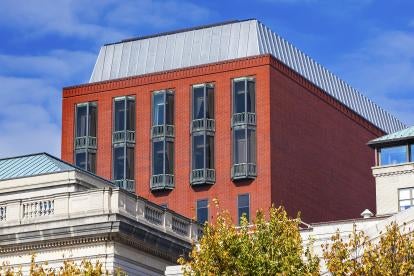The “safe harbor” of 35 USC § 271(e)(1) shields certain acts from liability for patent infringement if they are conducted “solely for uses reasonably related” to obtaining U.S. Food and Drug Administration (FDA) approval to market the product. In Edwards Lifesciences Corp. v. Meril Life Sciences Pvt. Ltd., decided on March 25, 2024, a majority panel of the Federal Circuit held that the importation of medical devices to support efforts to recruit investigators for a clinical trial was shielded by the safe harbor even though the devices were never actually used for that purpose. Judge Alan D. Lourie dissented and suggested Federal Circuit jurisprudence has strayed too far from the “solely” language in the statute.
The Medical Devices at Issue
The medical devices at issue were two transcatheter heart valves imported by Meril, which is described in the Federal Circuit decision as an India-based medical device company. The transcatheter heart valves were part of Meril’s Myval System. By the time the devices were imported into the United States, the Myval System had been approved for use in India and Europe, but not in the United States. As summarized in the opinion, to support the FDA approval process Meril needed to “identify clinical investigators to implant the device in human subjects, collect data from those subjects, and then submit the data to the FDA.”
The devices were imported into the United States when a Meril employee came to San Francisco to attend the 2019 Transcatheter Cardiovascular Therapeutics Conference (“TCTC”), bringing the samples along as “demonstration” samples. However, the “demonstration” samples were never demonstrated. According to the Federal Circuit decision, “[i]t is undisputed that the sample Myval Systems were never taken out of the bag or shown to anyone after they [were] imported into the United States.”
The Infringement Litigation
After the conference, Edwards Lifesciences, described in the Federal Circuit decision as a competitor medical device company, sued Meril for infringing its patents by importing the sample Myval Systems. Meril invoked the safe harbor of 35 USC § 271(e)(1), and the district court granted Meril’s motion for summary judgment of noninfringement due to the safe harbor.
The Federal Circuit Decision
The Federal Circuit decision was authored by Judge Kara F. Stoll and joined by Judge Tiffany P. Cunningham. Judge Lourie dissented.
The majority opinion begins its analysis by citing the 2004 Supreme Court decision in Merck v. Integra for the proposition that “[t]he safe harbor provides a wide berth for the use of patented inventions in activities related to the federal regulatory process.” The majority notes that Merck supports the principle that “the safe harbor is available to defendants irrespective of the stage of research and even if the information is never ultimately submitted to the FDA.”
The majority cites the 2015 Federal Circuit decision in Momenta Pharmaceuticals v. Teva Pharmaceuticals for its broad view of the safe harbor:
The breadth of the exemption extends even to activities the ‘actual purpose’ of which may be ‘promotional’ rather than regulatory, at least where those activities are ‘consistent with the collection of data necessary for filing an application with the [FDA] ….
The majority discusses three Federal Circuit decisions as “instructive”:
- The 1997 decision in AbTox, Inc. v. Exitron Corp., holding that § 271(e)(1) “does not look to the underlying purposes or attendant consequences of the activity . . . as long as the use is reasonably related to FDA approval.”
- The Momenta decision holding that routine quality control testing as part of the post-approval, commercial production process of a drug was not protected by the safe harbor.
- The 2019 decision Amgen Inc. v. Hospira, Inc., holding that challenged jury instructions “struck the appropriate balance by telling the jury that [defendant]’s additional underlying purposes [for alleged safe harbor activity] do not matter as long as [defendant] proved that the manufacture of any given batch of drug substance was reasonably related to developing information for FDA submission.”
The majority reads these decisions as holding that “the relevant inquiry is not why Meril imported the [Myval Systems], or how Meril used [them],” but only “whether the act of importation was for a use reasonably related to submitting information to the FDA.” Here, they agreed with the district court that it was. In particular, the majority agreed that the importation “was reasonably related to recruiting investigators for a clinical trial to support FDA approval,” because prior to the importation Meril “had taken significant steps towards obtaining FDA approval” and the Myval Systems were “transported” to the conference, “which was attended by a large number of potential clinical trial investigators.”
Meril’s importation of the [Myval Systems] constituted another step in the right direction ‘on the road to regulatory approval.’
Edwards had challenged the district court decision on several grounds, including asserting that “because Meril never actually used the devices after their importation, its safe harbor defense fails as a matter of law since § 271(e)(1) requires a use distinct from the otherwise infringing acts (make, use, offer to sell, sell, import) delineated in the statute.” The majority rejected this reading of the statute, finding that “nothing in the text of § 271(e)(1) requires an actual use separate and distinct from the delineated infringing acts.” The majority also reiterated their holding that “[n]othing in our jurisprudence suggests that the availability of the safe harbor turns on the party’s subjective intent behind an act.”
Judge Lourie’s Dissent
Judge Lourie dissented from the majority decision, based on his view that the term “solely” in the statute “creates a safe harbor only for uses, sales, and importations that solely are for, as the statute says, development of information for the FDA.” In that regard, Judge Lourie believes “[t]he purpose of the infringing act is meaningful and important to determining the safe harbor.” Judge Lourie acknowledges the decisions discussed in the majority opinion support the majority decision and suggests “the law could usefully be clarified by an en banc holding of this court, expressly returning the word ‘solely’ to its Congressionally-enacted place in the statute.”
How Wide is the Safe Harbor?
The “solely for uses reasonably related to” language of the statute has been interpreted expansively, but the majority’s express guidance that the actual reasons behind the allegedly infringing acts and even their actual nature are not even relevant to a safe harbor inquiry suggests the harbor could be wider than many believed. Here, it seems to have been enough that the imported devices could have been employed in a use reasonably related to FDA approval, even if they were not, and even if they also could have been employed in a nonsheltered use (such as for commercial purposes). While the majority’s approach could make it easier to prevail on safe harbor defenses at a summary judgment stage, Judge Lourie’s dissent highlights a concern that further expansion of the safe harbor could lead to “future mischief.”





 i
i


